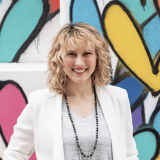Summary
In his talk, Dave Gray uses metaphors like the enterprise elephant and the blind men to describe how different perspectives in an organization create competing realities. Drawing on the concept of the ladder of inference from Chris Argyris, he explains how experiences, attention, theories, judgments, and beliefs form a self-sealing logic that organizations and individuals unconsciously reinforce. Lou Gerstner's story of IBM’s turnaround illustrates the need to see beyond siloed views. Dave emphasizes that beliefs drive behavior and that without understanding underlying beliefs and needs, efforts to change or get buy-in will fail. He shares powerful stories, such as Adrian’s misunderstanding of a team member’s late working hours, illustrating how testing assumptions through conversation helps break false beliefs. Dave highlights the risks of executive isolation using the “monkey tree” metaphor, where information is filtered upward, reinforcing distorted realities. He advocates for empathy and active outreach by leaders to break bubbles through direct engagement with customers and teams. Drawing on examples from Catherine Courage and Alyssa Briggs, he shows how creating safe spaces—via warm tea, cookies, or field trips—can foster trust and openness. Dave stresses the importance of double-loop learning and acting as if alternative beliefs are true as a way to test and shift organizational culture. He concludes with practical advice to assess people’s needs, understand behaviors, and design experiments to validate or revise beliefs, encouraging everyone to break autopilot routines and cultivate curiosity and openness.
Key Insights
-
•
Organizational culture is a self-reinforcing bubble shaped by shared beliefs that filter and distort reality.
-
•
People’s beliefs form through a ladder of inference: from experiences and attention to theories, judgments, and stories.
-
•
People rarely share their true beliefs openly, making understanding underlying needs critical to effect change.
-
•
Self-sealing logic protects existing beliefs by dismissing conflicting information and rationalizing contradictory evidence.
-
•
Senior leaders are especially vulnerable to distorted realities due to filtered information and lack of direct engagement.
-
•
Breaking patterns and assumptions requires curiosity, experimentation, and acting 'as if' alternative beliefs are true.
-
•
Creating safe spaces using simple acts like sharing warm tea or cookies can build trust and surface genuine needs.
-
•
Empathy for others, including leaders, helps support breakthrough out of limiting belief bubbles.
-
•
Small courageous acts, such as breaking dress codes or challenging routines, can build reputations and open new possibilities.
-
•
Double-loop learning—examining and revising underlying beliefs—is needed to overcome resistance and foster real organizational change.
Notable Quotes
"If you do anything with other people, you’re creating culture."
"The enterprise feels like a big elephant; different people touch different parts and argue what it really is."
"Beliefs are habits of action; they are the rules that guide how we decide to act."
"People don’t share their beliefs; you have to search for and understand them to get true buy-in."
"The higher up you are in an organization, the more distorted your reality is likely to be."
"It’s impossible to be angry with a warm cup of tea in your hand."
"The only way to get outside your bubble is to act as if an alternative belief is true and test it."
"Change only happens in the present moment, not the past or future."
"Most enterprises are not emotionally safe places; people can’t just leave emotions at the door."
"You lie to yourself more than anyone else; the lie is that you are completely rational and objective."
Or choose a question:
















More Videos

"If you have to learn a workaround, you want to learn it once and reuse it again and again."
Sam ProulxOnline Shopping: Designing an Accessible Experience
June 7, 2023

"Career managers develop close relationships with designers and advocate for staffing and promotions on their behalf."
Ignacio MartinezFair and Effective Designer Evaluation
September 25, 2024

"Stakeholders saw design as a slow-moving black box — exactly what we were trying to move away from."
Sarah Kinkade Mariana Ortiz-ReyesDesign Management Models in the Face of Transformation
June 8, 2022

"The Shakers patented clever affordances like chair buttons that let you rock without damaging wooden floors."
Daniel GloydWarming the User Experience: Lessons from America's first and most radical human-centered designers
May 9, 2024

"Humans remain essential for evaluation, especially to interpret cultural nuance that AI often misses."
Patrick BoehlerFishing for Real Needs: Reimagining Journalism Needs with AI
June 10, 2025

"With proper prompting, AI can get you really close to a deliverable summary, much closer than expected."
Andy Barraclough Betsy NelsonFrom Costly Complexity to Efficient Insights: Why UX Teams Are Switching To Voxpopme
September 23, 2024

"Policy is ideally driven by values, while UX in the private sector is driven by delight and profit."
Alexandra SchmidtWhy Ethics Can't Save Tech
November 18, 2022

"A lot of DevOps is about empathy — doing our piece but thinking about the larger connection."
Louis RosenfeldDiscussion: What Operations can teach DesignOps
November 6, 2017

"Carbon is just the starting point for what can be imagined. We're hired for our expertise to adapt, not just follow directions."
Mitchell BernsteinOrganizing Chaos: How IBM is Defining Design Systems with Sketch for an Ever-Changing AI Landscape
September 29, 2021
















